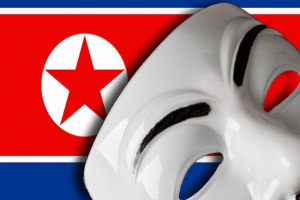North Korea accused of hacking smartphones
South Korea’s National Intelligence Service (NIS) has alleged that North Korean cyber army has infected over 20,000 smartphones belonging to South Koreans.
 Yonhap, South Korea’s news agency, reported that the cyber attacks were carried out between May and September. Victims reportedly downloaded infected applications from South Korean websites assuming that they were games but contained malicious code.
Yonhap, South Korea’s news agency, reported that the cyber attacks were carried out between May and September. Victims reportedly downloaded infected applications from South Korean websites assuming that they were games but contained malicious code.
However, NIS has not revealed whether the infected devices actually suffered any damage. Intelligence officials countered the threat by removing the malicious apps from the infected websites and devices, and securing them with advanced computer vaccines. South Korea has frequently accused North Korea of launching cyber attacks on its tech-savvy citizens, media outlets, and government establishments.
Preliminary investigations seem to suggest that the hackers behind this attack used Chinese web addresses. Their true identity is still unknown, but South Korea believes that they were employed by North Korea. Almost two years ago, South Korea had uncovered a malicious North Korean cyber attack targeting Incheon International Airport with malicious games.
The NIS report also says that South Korea has been the target of about 75,000 cyber attacks since 2010. They suspect that at least some of them originated in North Korea. The NIS report was published after the first talks in three years between the two countries ended in a stalemate. Earlier this year, several government offices and media websites had been attacked. Interestingly, these attacks coincided with the 63rd anniversary of the Korean War.
Meanwhile, efforts to restart talks between the North and the South have failed. North Korea is said to have refused the talks voicing its protest against South Korean activists who released propaganda balloons. The conflict between the countries began in 1950 when the Korean War was fought. The two Koreas are still at war in spite of a ceasefire agreement that exists between them. They are also involved in occasional physical exchange of fire at the border.
Axarhöfði 14,
110 Reykjavik, Iceland














